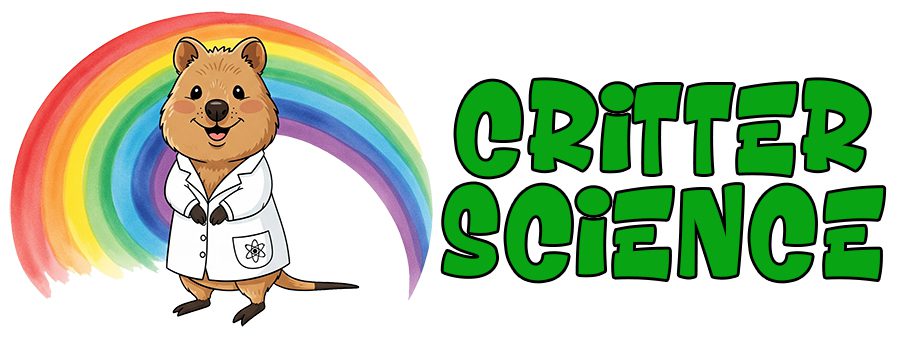- Zoology
- Ecology
- Sustainability
- Animal Behavioral Patterns
- What are Species?
- About the Critterman
- Daily Critter Facts
- For Teachers
- Study Guides
- Diseases & Parasites
- Contact


Zoology, a cornerstone of the biological sciences, delves into the intricate world of animals. It is far more than a simple cataloging of creatures; it’s a comprehensive exploration of their lives, encompassing their structure, evolution, behavior, and interactions with their environments. This discipline seeks to unravel the mysteries of the animal kingdom, from the microscopic intricacies of cellular processes to the grand scale of ecosystem dynamics.
From the Beginning
At its core, zoology is the scientific study of animals. This broad field encompasses a vast array of sub-disciplines, each focusing on specific aspects of animal life. For example, morphology examines the physical structure of animals, while physiology investigates their internal functions. Ethology explores animal behavior, and ecology examines how animals interact with their surroundings. These specialized areas contribute to a holistic understanding of the animal kingdom.
The history of zoology is a testament to humanity’s enduring fascination with the natural world. From the early observations of Aristotle, who laid the groundwork for systematic zoological study, to the revolutionary theories of Charles Darwin, which illuminated the process of evolution, zoology has been continuously evolving. The development of advanced technologies, such as microscopy and genetic analysis, has further propelled the field forward, enabling scientists to probe the depths of animal biology.
Taxonomy
One of the fundamental aspects of zoology is taxonomy, the science of classifying and naming animals. This system of organization allows zoologists to establish relationships between different species and trace their evolutionary lineages. The Linnaean system, with its hierarchical classification, provides a framework for understanding the vast diversity of animal life.
The Biological Aspect
Evolutionary biology plays a crucial role in zoological studies. By examining the fossil record and analyzing genetic data, zoologists can reconstruct the evolutionary history of animals, revealing how they have adapted to changing environments over millions of years. This understanding of evolutionary processes is essential for comprehending the diversity and complexity of the animal kingdom.
Physiology
Animal physiology explores the inner workings of animal bodies. It investigates how animals obtain and process energy, how their nervous systems function, and how they maintain homeostasis. This knowledge is vital for understanding animal health and for developing strategies for conservation and management.
Interactions
Ethology, the study of animal behavior, provides insights into the complex social interactions, communication systems, and survival strategies of animals. By observing creatures in their natural habitats, ethologists gain a deeper understanding of their cognitive abilities and behavioral adaptations.
Ecological Approach
Ecology examines the relationships between critters and their environments. Zoologists studying ecology investigate how creatures interact with other species, how they are affected by environmental changes, and how they contribute to ecosystem function. This field is increasingly important in addressing the challenges of habitat loss and climate change.
Conserving
Conservation zoology is a critical area of focus in modern zoology. With increasing threats to biodiversity, zoologists are working to protect endangered species and preserve their habitats. This involves research into population dynamics, habitat requirements, and the impact of human activities on animal populations.
The Marine Environment
Marine zoology focuses on the animals that inhabit the worlds oceans. From microscopic plankton to gigantic whales, the ocean is home to an incredible array of animal life. Marine zoologists study the adaptations of these animals to their aquatic environment, as well as the impact of pollution and climate change on marine ecosystems.
Arthropods
Entomology, the study of insects, is a specialized branch of zoology that explores the immense diversity and ecological importance of insects. These creatures play vital roles in pollination, decomposition, and food webs. Entomologists investigate insect behavior, physiology, and their interactions with other organisms.
From Scales to Skin
Herpetology, the study of reptiles and amphibians, is another specialized area of zoology. These animals, with their unique adaptations and ecological roles, are of great interest to zoologists. Herpetologists study their physiology, behavior, and conservation status.
Birds
Ornithology, the study of birds, provides a detailed understanding of avian biology. Birds, with their diverse adaptations for flight, song, and migration, are a fascinating group of animals. Ornithologists study their behavior, ecology, and evolution.
Mammals
Mammalogy, the study of mammals, examines the characteristics and behaviors of this diverse group of animals. Mammalogists study the physiology, ecology, and conservation of mammals, from the smallest rodents to the largest whales.
In Conclusion
Zoology is a multifaceted and vital scientific discipline. It provides a comprehensive understanding of the animal kingdom, from its evolutionary origins to its present-day diversity. Through its various sub-disciplines, zoology contributes to our knowledge of animal biology, behavior, and ecology, and plays a crucial role in conservation efforts.
